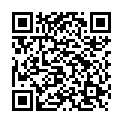|
|
|
| Module code: BITM-W-03 |
|
|
4SU (4 hours per week) |
|
5 |
| Semester: according to optional course list |
| Mandatory course: no |
Language of instruction:
German |
Assessment:
Project (can be repeated annually)
[updated 17.09.2018]
|
DFBTO-W-02 (P620-0533) International Tourism Management, Bachelor, ASPO 01.10.2018
, semester 4, optional course
DFITM-W-03 (P620-0482) International Tourism Management, Bachelor, ASPO 01.10.2020
, optional course
BITM-W-03 (P440-0060, P440-0106) International Tourism-Management, Bachelor, ASPO 01.10.2013
, optional course
BITM-W-03 (P440-0060, P440-0106) International Tourism-Management, Bachelor, ASPO 01.10.2015
, optional course
BITM-W-03 (P440-0060, P440-0106) International Tourism-Management, Bachelor, ASPO 01.10.2017
, optional course
BITM-W-03 (P440-0060, P440-0106) International Tourism-Management, Bachelor, ASPO 01.10.2020
, optional course
|
60 class hours (= 45 clock hours) over a 15-week period.
The total student study time is 150 hours (equivalent to 5 ECTS credits).
There are therefore 105 hours available for class preparation and follow-up work and exam preparation.
|
Recommended prerequisites (modules):
BITM-112 Principles of the Tourism Sector
BITM-115 Cost Accounting in Tourism
BITM-240 Marketing and Market Research in Tourism
BITM-320 Management in the Tourism Industry
BITM-331 Stakeholders in the Tourism Industry
[updated 11.12.2019]
|
Recommended as prerequisite for:
|
Module coordinator:
Prof. Dr. Ralf Rockenbauch |
Lecturer: Prof. Dr. Ralf Rockenbauch
[updated 26.06.2017]
|
Learning outcomes:
After successfully completing this module, students will have developed and deepened their knowledge of:
- the economic dimensions of tourism, in particular with regard to the developments and perspectives of the recreation industry
- the approaches of modern consumer theory in tourism in regions (local recreation)
- the special aspects of marketing adventure and event-educational tourism offers
- the strategic marketing of recreation businesses and adventure agencies
- marketing mix instruments (product, pricing, communication and distribution policies) in a regional, national and international context
- the characteristics of the tourism sector in the field of event marketing
- market structures and participants in the recreation industry (suppliers, customers, organizations).
After successfully completing this module, students will:
- have gained insights into the principles of recreation and adventure management by tourism organizations and can analyze and present procedural and organizational questions from organizations in the recreation industry (organizational change; special features of international tourism organizations)
International and intercultural references
- Working with (inter-) national recreation businesses and adventure agencies
- In the context of examples from international organizations, as well as companies in the recreation and adventure sector
Practical references:
- Management and policy concepts in the recreation industry
- Business and economic methods in the recreation industry
- Social competence
- Projects, events, guest lectures, trips (together with students from different semesters and subject areas)
- In particular adventure and event-educational management concepts and methods that are important for a sustainable recreation industry
Students will expand and deepen their skills in modern presentation techniques, project and team work and scientific work techniques.
After successfully completing this module, they will be able to:
- understand and analyze service-oriented problems and special aspects of the recreation industry and map them in planning models
- apply basic planning and control methods in recreation and adventure management (strategic planning and operational implementation of marketing instruments within the scope of projects)
- describe, develop, plan and design basic service-specific processes in recreation and adventure management,
- implement and control basic service-oriented strategies and concepts in recreation and adventure management (process policy as part of the marketing mix in leisure and adventure management)
- cooperate and evaluate within the framework of project management (focus/project definition, planning, project structuring, prioritization/derivation of analyses, activity planning, implementation, success control)
- apply the principles of process management in order to establish control processes
- communicate more efficiently (pyramid principle) and interact with external parties and groups
- apply the principles of motivation and teamwork
[updated 17.09.2018]
|
Module content:
- Developments and perspectives of the recreation industry
- Event marketing
- Approaches of modern consumer theory in regional tourism (local recreation)
- Principles of recreation and adventure management
- Strategic marketing of recreation businesses and adventure agencies
- Marketing mix instruments (product, price, communication and distribution policies) in a regional, national and international context
- Lecture
[updated 17.09.2018]
|
Teaching methods/Media:
- _SRL _ Self-regulated learning_
- Case studies (excursions, if necessary)
- Role playing
- Group and project work (independent development of a concept
and its presentation)
- Discussions with students and guests
- Presentations and preparation of documentations/compositions
On the basis of selected data and case studies, students will be taught to develop concepts independently, as well as implement their concepts and reflect upon them.
[updated 17.09.2018]
|
Recommended or required reading:
In addition to the basic literature already mentioned in the modules BITM-111 and BITM-320, the following literature is recommended:
-Nufer, G., Bühler, A., (Hrsg.), Management und Marketing im Sport _ Betriebswirtschaftliche Grundlagen und Anwendungen der Sportökonomie, Berlin, latest edition
-see also: http://homepages.uni-tuebingen.de/gerd.nufer/index.html
-Managing Change in Tourism: Creating Opportunities - Overcoming Obstacles, Thomas Bieger, Peter Keller (Herausgeber), Berlin, latest edition
-see also: http://www.alexandria.unisg.ch/Publikationen/Zitation/Thomas_Bieger
-Freyer, W., Sport-Marketing: Modernes Marketing-Management für die Sportwirtschaft, Berlin, latest edition
-FdSnow, Fachzeitschrift für den Skisport, Freunde des Skisports im Deutschen Skiverband
-Hayes, N., Saving Sailing, Crickhollow, Milwaukee, 2009, How _ and more importantly _ why? A provocative argument and action plan _ sure to appeal to sailors everywhere
_ for the revival of family sailing and quality uses of free time for rewarding intergenerational pastimes, lifelong hobbies, and free-time pursuits.
-Hoye, R., Sport management: principles and applications, 2. Auflage, Elsevier, Amsterdam u. a., 2009
-Letzner, V., Tourismusökonomie _ Volkswirtschaftliche Aspekte rund ums Reisen, Oldenbourg, München, 2010
-Csikszentmihalyi, M.: Das Flow-Erlebnis. Stuttgart 1993
-Csikszentmihalyi, M./Jackson, S.A.: Flow im Sport. München 2000
-Neumann, P.: Das Wagnis im Sport. Schorndorf 1999
-Opaschowski, H.W.: Xtrem _ Der kalkulierte Wahnsinn. Hamburg 2000
-Opaschowski, H.W.: Deutschland 2020. Wie wir morgen leben _ Prognosen der
Wissenschaft. Wiesbaden 2006
-Opaschowski, H.W.: Freizeitökonomie _ Marketing von Erlebniswelten. Opladen
1995
-Schulze, G.: Die Erlebnisgesellschaft, Kultursoziologie der Gegenwart
Frankfurt 1995
-Wopp, Ch.: Entwicklungen und Perspektiven des Freizeitsports. Meyer & Meyer,
Aachen 1995
-Opaschowski, H., Das gekaufte Paradies, Germa Press, Hamburg, latest
edition
-Opaschowski, H., Tourismus, Leske und Budrich, Opladen, latest
edition
-Steinecke, A. (Hrsg.), Erlebnis- und Konsumwelten, Oldenbourg, München, 2000
-Bischof, R., Event-Marketing _ Emotionale Erlebniswelten schaffen, Zielgruppen
nachhaltig binden, Berlin, latest edition
-Institut für Mobilitätsforschung (Hrsg.), Erlebniswelten und Tourismus,
Springer, Berlin, 2004
-Freyer, W., Tourismus-Marketing, Oldenbourg, München, latest
edition
-Schilling, J., Planung von Ferienlagern und Freizeiten, München, 1981
In addition, project-specific introductory literature in the relevant (foreign) languages will be announced during the lectures.
[updated 17.09.2018]
|


